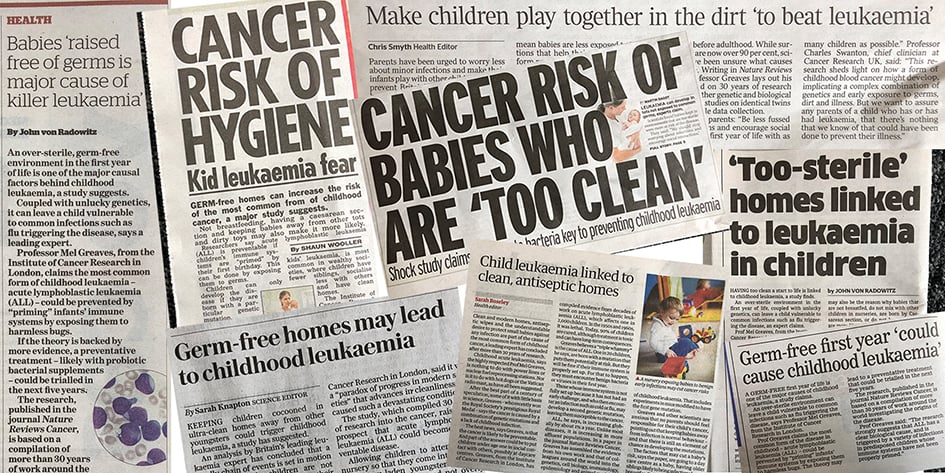
The Institute of Cancer Research regularly features in the news. We select some of the biggest media stories about ICR research in recent weeks.
Once again ICR researchers have been active in the media, both in coverage of their research and by leading commentary on other notable discoveries.
There was substantial worldwide attention for a major new analysis of childhood leukaemia by Professor Mel Greaves, who is widely regarded as one of the most eminent active cancer researchers.
His new work – a highlight of a highly decorated career – shows that acute lymphoblastic leukaemia is likely caused by a two-step process of genetic mutation and lack of exposure to infection in infancy.
The results – reported by media outlets such as the BBC – show that this common childhood cancer may be preventable with treatments to stimulate or ‘prime’ the immune system in infancy.
Other studies to hit the headlines include an important new study that has led to a saliva test to detect men at highest risk of prostate cancer. The researchers are now planning a trial of the DNA test in GP practices, to evaluate whether advice or preventative treatment could reduce cases of prostate cancer among those men found to have the highest inherited risk.
In another prostate cancer study, scientists from the ICR and the US describe a subtype of prostate cancer, characterized by loss of both copies of the CDK12 gene, which can respond to immune checkpoint inhibitor drugs.
That study followed on from the results of the first major trial to show the benefit of immunotherapy for some men with prostate cancer.
Our statement expressing disappointment about NICE’s decision not to recommend abiraterone, discovered at the ICR, as a first-line treatment for men with prostate cancer, featured in outlets such as The Daily Telegraph.
Our researchers were also active in providing expert comments to the media on areas of their expertise – for instance in liquid biopsies or immunotherapeutics.
If you want to know more about these or any other ICR news stories please contact [email protected] or [email protected].